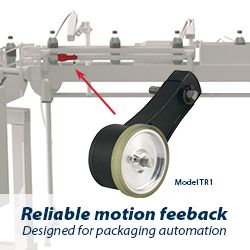Telford’s Protolabs opens new €16m European 3D Printing Centre
The world-leading source of digital manufacturing services is boosting its additive manufacturing capacity by 60% thanks to a €16m investment.
The world-leading source of digital manufacturing services is boosting its additive manufacturing capacity by 60% thanks to a €16m investment.
Protolabs, which employs around 450 people at its UK Headquarters in Telford, has opened its new European 3D printing centre in Putzbrunn near Munich, providing a world class facility that contains future-oriented technologies, highly skilled employees and a host of sustainable benefits.
The expansion means its UK customers will now be able to access even faster lead times and more than 60 industrial 3D printers offering metal and plastic parts through a range of additive manufacturing technologies.
It is perfect timing, with clients in the automotive, aerospace, electrical, industrial, medical and energy sectors looking to invest following the easing of lockdown.
"We are very pleased about the opening of our new European 3D printing centre in Putzbrunn and the strategic importance it will have for customers in the UK," explained Bjoern Klaas, Vice President and Managing Director of Protolabs Europe.
"The new production facility expands our capacity and enables further growth for pioneering 3D printing technologies in the future. Our UK customers will enjoy an even greater range of services and this latest investment will undoubtedly help us meet our promise of delivering prototypes and low-volume production parts in just a few days."
Protolabs has also enhanced its commitment to the environment with several sustainable features included in the design of the Putzbrunn plant, building on its ISO 14001 certification and desire to save resources whilst reducing its CO2 footprint.
This is already evident in energy consumption alone, which has been reduced by leveraging the capabilities of heat recovery and waste heat utilisation, as well as the intelligent linking of engineering processes.
The new location, which keeps noise emissions below 26 decibels, also includes charging facilities for electric and hybrid vehicles in its own parking garage and draws on a mix of green electricity.
"The opening of the 3D printing centre illustrates our long-term corporate strategy, which is geared towards fast evolving technologies, rapidly shifting markets, environmental considerations and world-class employees," added Klaas.
"In doing so, we want to fulfil our social responsibility, as well as deliver an unparalleled service through digital manufacturing. This approach enables our customers to more rapidly develop their products, go to market faster, reduce manufacturing costs and achieve a flexible supply chain throughout the entire product lifecycle."
Protolabs has been operating in Telford since 2005 and provides custom components in as fast as one day, using automated 3D printing, CNC machining and injection moulding technologies.
For further information, please visit www.protolabs.co.uk or follow @protolabs_emea on twitter.
Featured Product

Model TR1 Tru-Trac
The Model TR1 Tru-Trac® linear measurement solution is a versatile option for tracking velocity, position, or distance over a wide variety of surfaces. An integrated encoder, measuring wheel, and spring-loaded torsion arm in one, compact unit, the Model TR1 is easy to install. The spring-loaded torsion arm offers adjustable torsion load, allowing the Model TR1 to be mounted in almost any orientation - even upside-down. The threaded shaft on the pivot axis is field reversible, providing mounting access from either side. With operating speeds up to 3000 feet per minute, a wide variety of configuration options - including multiple wheel material options - and a housing made from a durable, conductive composite material that minimizes static buildup, the Model TR1 Tru-Trac® is the ideal solution for countless applications.
